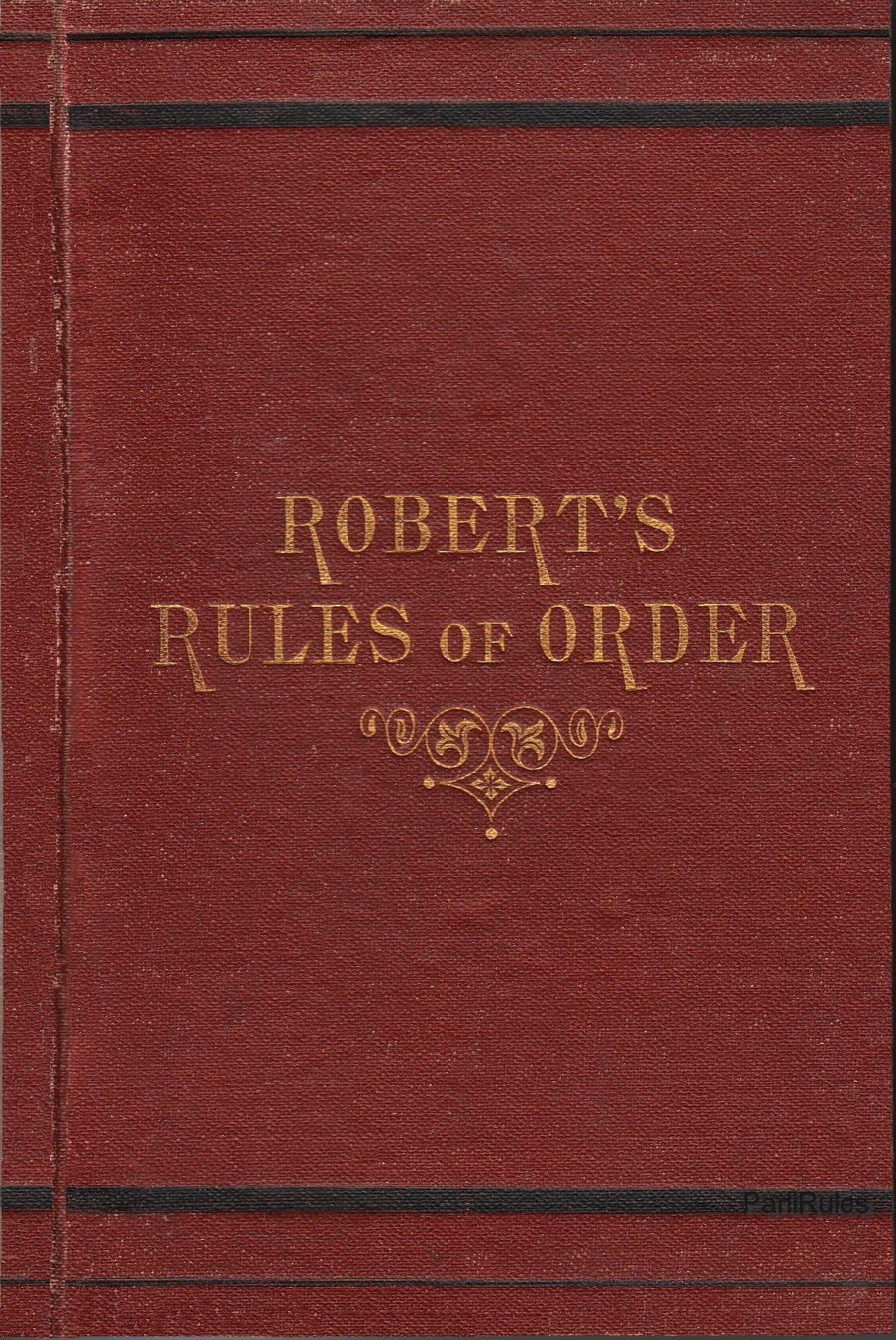You may have heard Robert’s Rules of Order to describe the Parliamentary procedure we use in DeMolay.

Who was he and why do we use his rules?
Henry Martyn Robert grew up in Ohio after his family moved there from South Carolina due to opposition of slavery. He would later attend West Point and became an army engineer where he was involved in harbor and other improvements. In 1863, he was elected chair of a committee for his church in New Bedford, MA. The meeting was called to discuss how to defend the communities harbor. The meeting collapsed because the young 25 year old lieutenant had no idea what to do.
Of the meeting Robert said: “ One can scarcely have had much experience in deliberative meetings of Christians without realizing that the best of men, having wills of their own, are liable to attempt to carry out their own views without paying sufficient respect to the rights of their opponents.” He vowed to never be caught like that again and went off to study parliamentary procedure and found it to be a mess. Like the engineer he was went through and made copious notes and studies of parliamentary procedure and created an easy to use pocket guide. The rest they say is history!
A few people may be curious where the term “Parliamentary Procedure” comes from. In England and later the United Kingdom, their elective representative body is called Parliament and the process they use is called procedure. Hence the term. It is cool to note that it was failure that caused Robert to develop one of the most useful things we use in organizations and groups use today!
"Dad" Mullen, Past State Scribe for the Great State of Ohio, has a five page cheat sheet that has some of the most common parlimetnary processes used. You can download it from here. Thank you "Dad" Mullen!
A few important tidbits:
- The Houses of Congress have their own parliamentary procedures and do not follow Robert’s Rules (Article I, Sec 5) and most State Legislatures have their own processes. NOTE: Just because Congress does it, does not mean your chapter can or should do it. Usually the opposite. :)
- If a motion comes from a committee it does not need a second.
- You say “I move” not “I motion”
- DeMolay Statutes & EO Directives override Parliamentary Procedure.

